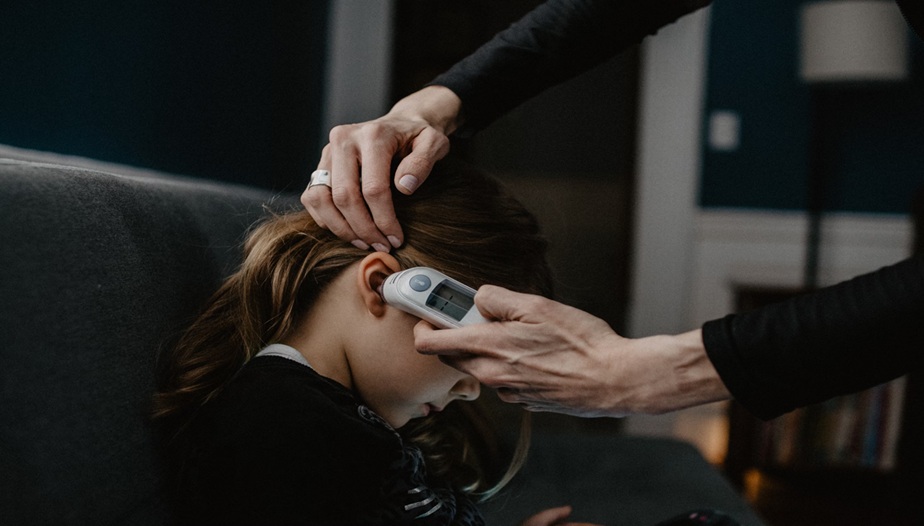It’s late, your child feels hotter than usual, and you can’t shake that uneasy feeling. Our team at Pediatric Associates of Savannah understands how a slight temperature spike can unsettle even experienced parents.
Our pediatricians have decades of experience, and we see how “fever phobia” can turn a normal immune response into panic.
Why Are Fevers Scary?
Fever phobia describes the fear many parents have about elevated temperatures. In reality, fevers often signal the body is working to fight an infection.
That doesn’t mean they’re harmless if extremely high, but a mild rise isn’t usually an emergency. Focus on your child’s mood, energy level, and appetite. If they’re playful, alert, and drinking fluids, you might not need to rush for medication.
Defining a Fever
A child is generally considered feverish at 100.4°F (38°C) or higher. For infants under three months, any fever is worth a call to rule out serious issues. For older kids, reach out if temperatures exceed 104°F or if fever lingers beyond three days.
Our offices on Waters Avenue, Pooler Parkway, and Whitemarsh Island are open 365 days a year. We’ll help you decide if a visit is necessary, no matter the day or time.
Myths vs. Reality
Some people worry fevers can cause permanent harm, but ordinary fevers from common illnesses aren’t likely to reach brain-damaging levels.
Another myth is that every fever needs immediate medication. If your child is comfortable, drinking fluids, and not showing alarming symptoms, it can be fine to hold off. Lowering a fever too quickly can mask clues about what’s really going on.
When Medication Makes Sense
Pain relievers like acetaminophen or ibuprofen can help if your child is clearly uncomfortable or reluctant to drink. Yet not every fever demands medication. Mild fevers can slow down germs, giving the immune system a chance to work. We recommend a balanced approach: medicate if your child is miserable or in pain, but don’t feel pressured if they’re otherwise doing well.
Home Care 101
Offer plenty of fluids — water, broth, or pediatric electrolyte solutions — to prevent dehydration. Dress your child lightly so heat can escape.
A lukewarm bath can bring relief, but skip cold baths that shock the body. Keep a casual eye on diaper output or bathroom trips. If you’re unsure, remember we’re a pediatric office in Savannah you can call anytime for advice.
Monitoring Behavior
Beyond the thermometer reading, pay attention to how your child is acting overall. Are they still interacting, smiling, or showing normal curiosity? If so, that’s usually a good sign. Sudden changes in behavior, severe irritability, or trouble waking up should prompt a closer look.
Febrile Seizures
A sudden temperature spike can trigger a febrile seizure in kids between six months and five years. It’s upsetting to witness shaking or a brief loss of consciousness, but most episodes last only a minute or two. Lay your child on their side and never put anything in their mouth. Once it ends, contact us to discuss next steps.
When to Call Sooner
Certain health conditions — like asthma, diabetes, or immune system issues — can make even moderate fevers more concerning. Don’t wait if your child has trouble breathing, persistent vomiting, or seems unusually lethargic.
Also, take note of any patterns. If fever returns repeatedly or pairs with unusual symptoms, we want to hear about it. Open communication is better than silent worry.
Staying in Touch and Seeking Guidance
We don’t want you handling fever worries alone. Our practice offers well visits, sick visits, lactation consulting, ear piercing in a medical setting, and immunizations. We aim to be your one-stop pediatric resource.
A quick call can spare you hours of second-guessing. We understand that parents sometimes feel guilty about phoning “too often,” but we’d rather you call than sit at home anxious.
Our Commitment to Families
Being a pediatrician in Savannah means supporting the community day in and day out. Whether you’re near Waters Avenue, Pooler Parkway, or Whitemarsh Island, our pediatricians and nurse practitioners stand ready to help.
We know fevers can strike anytime, which is why our doors stay open every single day. We also post helpful articles on our website so you can learn more about common childhood issues.
Conclusion
Fever phobia can turn a mild temperature into a huge worry, but a little knowledge goes a long way. Most fevers are the body’s normal response to infection. If something feels off, trust your instincts and give us a call — we’re here to talk you through it.
Ready for a practice that has your back? Consider becoming a patient at Pediatric Associates of Savannah. Check out our new patient checklist. We’re excited to help your child thrive, no matter what challenges come your way.
Sources:



